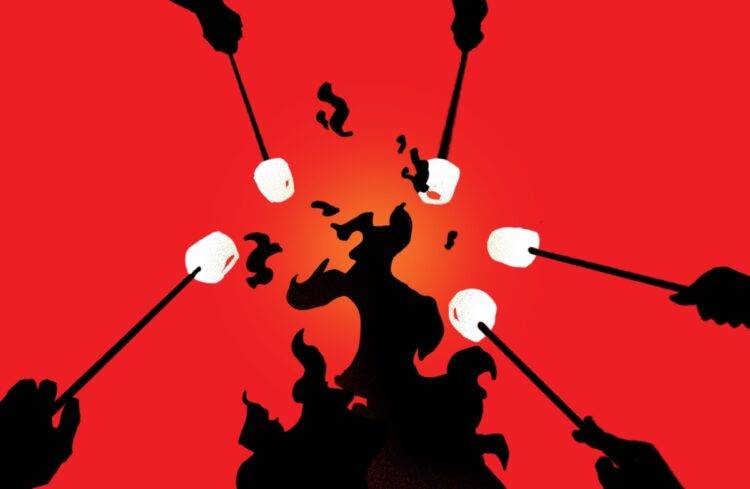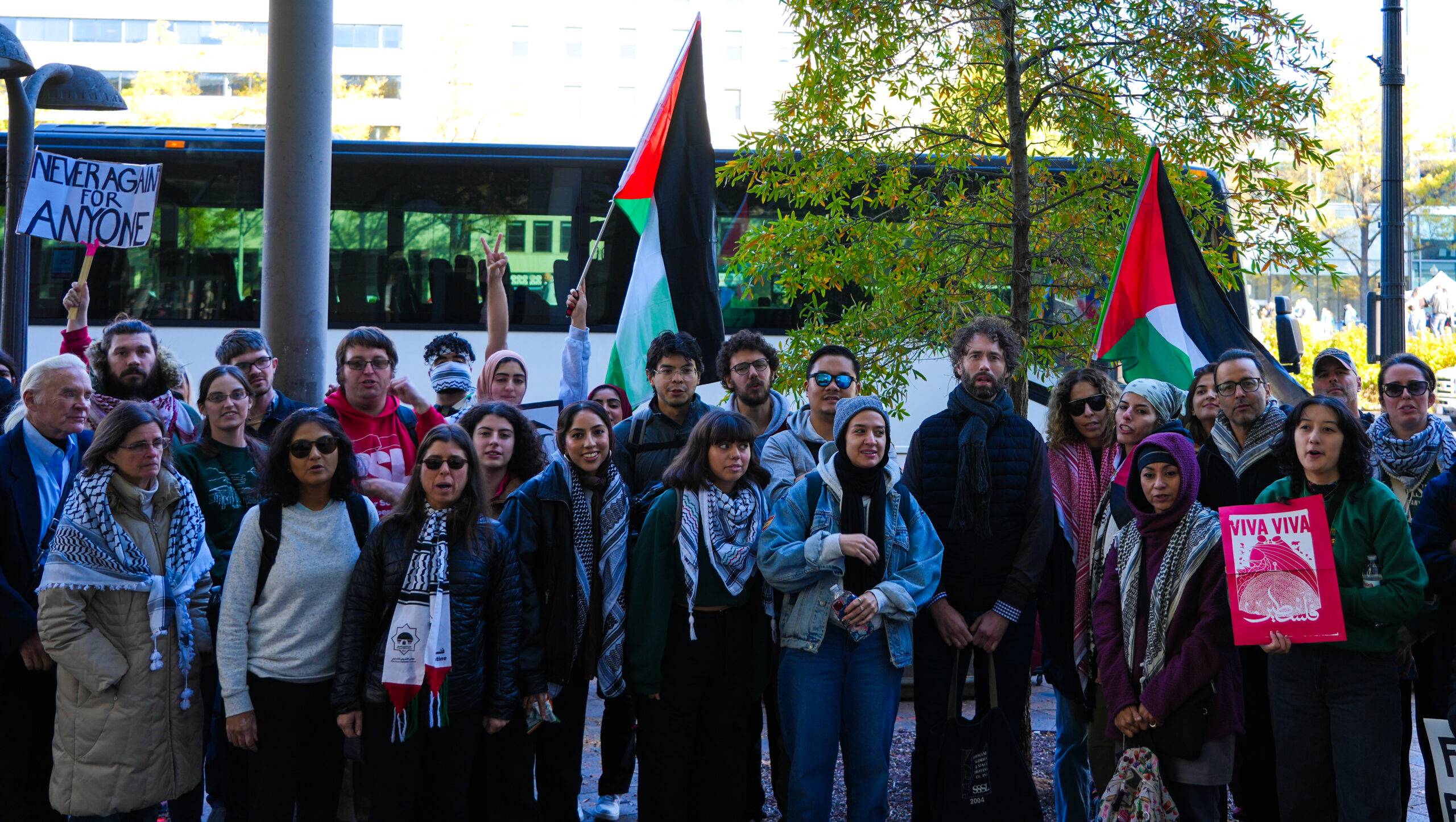
I may look like I stepped out of a J.Crew catalog, but despite my girly and preppy exterior, I actually have a fairly crunchy and outdoorsy resumé.
During the summer of 2007, I applied for my first job ever as a camp counselor. When I think about the most formative experiences in my life, my mind revisits the grassy trails of Bethel Horizons Summer Camp in Dodgeville, Wisconsin where I spent six summers as a counselor from the ages of 14–20.
At the time, Bethel Horizons was a nonprofit which offered “camperships” to kids who couldn’t otherwise afford a sleepaway camp experience. Nestled on 548 acres of land bordering Governor Dodge State Park (on the ancestral lands of the Ho-Chunk Nation), Bethel Horizons is like a giant inside joke: You kind of had to be there to fully understand its magic, but I’ll do my best to describe it to you.
At “BH,” there were two small centers where campers sometimes slept and ate, but most of the campers and counselors spent the entire week sleeping outside. Each night, we set up a tarp and our sleeping bags around the campgrounds, occasionally in tents, but with no ceiling except for the starry night sky.
We slept on picnic tables, on basketball courts, in the sand pit, on the big grassy hill. When it rained, we slept on the carpeted floor of the Nature Center — full of creepy taxidermic animals — or on the creaky wooden slabs in “The Barn” — filled with bats fluttering over our heads as we drifted off to sleep. (I do realize that was probably violating at least five health codes but whatever, it was the early aughts).
The budget was so low that a lot of the food we had came from a local food bank, and we consumed the same foods so frequently that I still remember the meal plan by heart: on Mondays we had pancakes, sandwiches, and hot dogs at the beach. Several other meals we cooked over an open fire. Even after six years and dozens of egg cartons full of fire starters, I was never able to start a fire on my own.
We showered once a week in these old outhousey showers, but it was a waste of time — we couldn’t get the smell of bonfire out of our clothes and our hair no matter what we did. Evening campfires were filled with stories, songs, and sketches that devolved into legends and inside jokes, a special language that only us camp folk understood.
Every afternoon, we hiked two and a half miles to a lake where we rinsed our sweaty and sticky bodies in water that smelled like dirty lettuce. The counselors were all teenagers between the ages of 14–20, tasked with taking care of a gaggle of elementary school kids for an entire week. We could’ve spent our summers watching TV and hanging out with friends, but instead, we elected to eat PB&J’s and sleep in tents with a bunch of other peoples’ children.
So what did we do to entertain the campers? We gave ‘em tons of junk food and ran around with them for six days, telling them spooky camp stories to scare them away from trying to sneak out at night. The counselors, in contrast, stayed out way too late each night after the kids fell asleep, venting, telling stories, and looking up at the stars, then woke up four hours later to make the kids oatmeal.
When I was at camp, I was dirty. I was overtired. I was probably malnourished, but I was by far the happiest I’ve ever been. The bonds that we formed at camp were deeper and stronger than any other friendships we had because we shared this unique living experience.
On my last night of camp, I walked down the big grassy hill toward the flickering bonfire. I thought about how Bethel Horizons is where I’ve felt the most at home, the most human, and the most like myself. I was 20 at the time, and I promised myself that if I couldn’t be a career camp counselor forever, I would find a job that felt as close to that feeling as possible.
The things I love most about camp are the community, the collective care, and the connection to something bigger than ourselves. At that last bonfire, I wrapped my arms around my fellow counselors and sang the words to our Bethel Horizons’ version of “Country Roads” with tears rolling down my cheeks. At the time, I couldn’t quite articulate why it was such a magical place, but I knew I wanted to hold onto that feeling forever.
I ended up stumbling into a career in education (and so did many of my fellow counselors), which I don’t think is a coincidence. Post-graduation, I taught preschool for five years.
Now that I’m close to graduating as an art therapist, I’ve completed my practicums in therapeutic schools. Being in a school setting often gives me camp-adjacent feelings. It’s a close community where we spend lots of time together and get to know each other well. The classroom almost becomes like a little “home away from home.”
As an educator, you get to go outside almost every day and don’t spend too much of the workday on screens. You spend most of the day busy and on your feet. The career is dedicated to caring for children and building relationships with them. Camp spoiled me for life because I’ll never be able to hold down a job that I don’t look forward to or sit at a desk staring at spreadsheets.
Even though I walked away from Bethel Horizons over a decade ago, the past two summers I found myself back at camp, once as a “camper,” and once as a clinical intern.
Ox-Bow is a magical, campy haven (pun intended) tucked away in Saugatuck, Michigan where art school students and other artistically-inclined adults live together communally, taking two weeks of intensive classes in painting, ceramics, woodshop, glass, papermaking, and printmaking. At Ox-Bow, there are deer that are so comfortable around humans they walk right up to them and eat out of the palms of their hands. There are chickens who roam the property freely, which I’m pretty sure supply the kitchen with the eggs they use for breakfast and homemade baked goods.
The whole place screams “artists inhabit this space!” from the mismatched painted chairs in the dining room and the homemade coffee mugs to the flyers and prints scattered about with slogans like “Death is the aftercare for the BDSM of life” or similar cheeky advertisements for “corn parties.”
After a stressful school year, I can’t explain all the ways that two weeks in nature, making art, connecting with other humans, and ignoring my phone and inbox healed my soul.
This past summer, I was fortunate enough to add the second post-Bethel Horizons camp experience to my resumé, at Experience Camps. Experience Camps is a conglomerate of nonprofit camps which offer free week-long overnight camps around the country for children and teenagers who are grieving the loss of a primary caregiver or sibling. I worked at the Camp Lake of the Woods chapter. I signed on to be a clinical intern on their grief specialists team, a group of therapists and social workers who are hired to offer emotional and behavioral support throughout the week.
When I told people I was going to a grief camp, a lot of them responded with discomfort. (Here’s a little known fact about grief: It’s ok to have fun while you’re grieving). I spent the week sleeping on a twin bed without Wi-Fi or air conditioning in 90 degree heat, but it was my favorite week of the summer. Clinicians spent an hour every day giving kids the opportunity to talk about their person who passed away, but outside of that time, they got to feel like kids again. I got outrun by an 8th grader during capture the flag, swam in lakes, and attended the best carnival I’ve ever seen (which included four bouncy houses and a cotton candy machine).
Camp Lake of the Woods has archery, water skiing, basketball, a full kitchen and cafeteria, and cabins for everyone to sleep inside, so compared to Bethel Horizons it was like the Ritz Carlton. The feelings, (or “vibes,” if you speak Gen Z) however, were pretty much the same.
Everyone spoke all week about the magic of being there, how it was “the Best Week Ever.” Some of the kids cried when they had to go home. A lot of them spend all year looking forward to camp. Experience Camp is especially important for these kids because it offers them a space where their grief is welcomed rather than condemned. At camp, these children have the opportunity to connect with others with shared experiences.
Part of the reason I think camp is so enchanting is because it’s like a frozen moment in time — a moment where we’re able to return to the way that humans are intended to live.
At camp, we swap time in nature for time usually spent on screens and social media. In addition to the plentiful fresh air, there are lots of physical activities. We spend entire days walking, running, swimming, and playing. At camp, we cohabitate in a small community, building relationships quickly and skipping straight through the shallow stages of them. We sleep in cabins, share meals together, and have campfires every other night instead of sitting in traffic and living in single-family homes or studio apartments. At camp, we spend all day communicating with each other, talking to each other, and laughing with each other. At camp, everything is shared.
We are living during a period of hyper-individualism (especially in the United States), where we live separately and work all day on computers. Up until just a mere century ago, it was far more common for families to cohabitate with each other and raise their families communally.
When we’re at camp, I believe our bodies and our hearts remember how humans lived for centuries. When we’re there, our cells can taste how close we are to the living structures of our ancestors, and maybe we feel an aching in our hearts for a return to those times as well. If you’ve ever been to camp, you probably know exactly what I’m talking about. I’m not sure if it’s possible for us to make all-day everyday feel like camp, but I do believe we could all get a little bit closer if we prioritize community, shared spaces, our connection to nature, and our connection to something bigger than ourselves.







